Singer, CEO and nonprofit founder Mela Sarajane Dailey keeps expanding her circles.
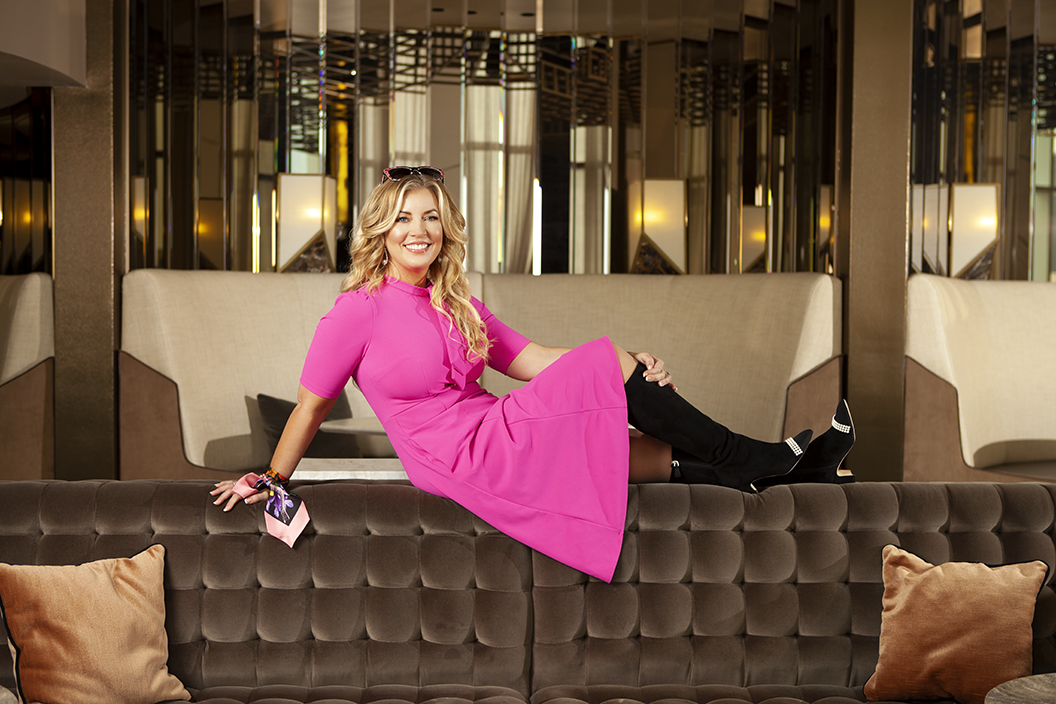
By Brianna Caleri, Photos by Rudy Arocha, Hair by James Bryant, Makeup by Brittany Craig, Styled by Nathan Idais, Shot on location at Fairmont Austin
Things felt almost normal in Isabel Welland’s backyard one Tuesday in early February. The retired advertising manager hosted a hybrid in-person and video conference between Austin Artists Project (AAP), the nonprofit born from her initial donation, and its production partners for an upcoming Broadway revue. Singer and AAP Executive Director Mela Sarajane Dailey sat several feet away, bent over a folding table and pouring charisma into two iPads. The director of the upcoming show and AAP’s grant coordinator and curriculum consultant, Kevin Little, was across from her. It was surely one of very few meetings around the city, and even the country, in which some of its participants could see each other from tip to toe. (There was some excited discourse about leather shoes.) Austin was starting to warm up after a lonely winter. But that weekend it started getting icy, and then it snowed.
Texas was hit with its worst storm in 88 years. In a spectacularly high-profile failure of resource management, more than 4 million Texans lost power. Luckily, Dailey had just organized some grocery donations for five families in an AAP program, in anticipation of a fairly regular long weekend. Her own water went out for nearly a week. Neighbors stopped by to help search for a broken pipe in the yard. Dailey’s family stayed clean through the hospitality of friends. Just two hours after getting water back, Dailey was at another house for another hybrid meeting. Beaming at the all-woman AAP board in a robin’s-egg blue jumpsuit that says anything but “I just experienced a nesting doll of crises.”
Sing Out!
Says Dailey, “We’re so used to pivoting that it doesn’t even feel [like it].”
Sing Out! A Pride Musical Revue, the show under development by AAP, was scheduled to premiere at Lincoln Center in New York City, during NYC Pride 2020. The pandemic pushed those plans back a year, and a new idea emerged. The Lincoln Center show will still go on. But Austin will see the true first performance in the parking lot of the nonprofit Ground Floor Theatre on Springdale Road. The space will be arranged to accommodate social-distancing guidelines, with a stage and two 25-foot LED screens.
The show is all about the cast, who will deliver personal stories and perform songs reflecting their experience in the LGBTQIA2+* community.
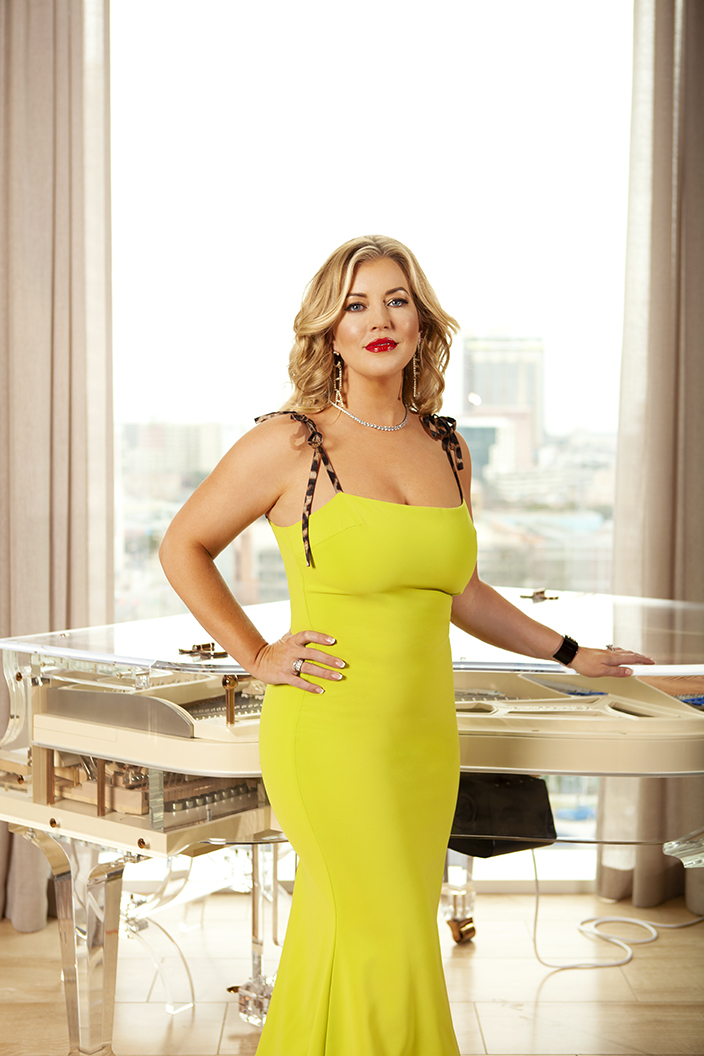
Half the performers are Black, half are from Austin and some are Grammy and Tony nominees and winners. Rocky Lane, the board chair of the Transgender Education Network of Texas, will emcee. This all lines up with AAP’s mission to increase equity in the arts and ensures that diverse performers are hired for meaningful work during an especially competitive time for finding gigs.
“This isn’t just any old work,” says Dailey, who reveals she is bisexual and will be performing in the cast. “It’s work that you want to do, and it advances your career.”
Friendly Conversation
In fact, the show started because of one genius casting decision. At the 2019 Tony Awards, Dailey sat next to nominee Beth Malone of Fun Home, the first Broadway show to feature a lesbian lead. They shared a table with the producers of The Prom. One of whom voiced a wish to see Malone in a concert during Pride. Dailey’s gears started turning. She invented Sing Out! as a fundraiser for AAP and Ground Floor Theatre, adding in other LGBTQIA2+ organizations as things progress. The team kept expanding.
Dailey ran into Hollywood director Matt Earl Beesley at a Tesla charger. After a friendly conversation between strangers, Beesley agreed to recruit a seven-camera film crew for the Austin premiere. Another connection came via Blackfeather Vintage Works, a shop that resides in the same shopping center as Ground Floor Theater. The collector for the shop, Greg Wooldridge and his wife, Lynne Dobson, committed to sponsor the film crew, a film director, an editor and a costume designer. Clear Lake Choir Director Courtney Neva is also coming on board to lead the Sing Out! youth choir, while an adult choir is under development.
At the backyard meeting, Dailey shared another piece of good news. She’d been in touch with the executive director of the Civic Music Association (CMA) of Des Moines. The 95-year-old institution approached her to inquire about performances to broadcast. She brought them up to date with Sing Out! She even asked if they would cover the associated costs. They agreed, and when the stream goes live, members will pay what they can. All of CMA’s proceeds will go to LGBTQIA2+ organizations. The show joins a long roster of featured greats such as Sergei Rachmaninoff, Chick Corea, Esperanza Spalding, Philip Glass and Béla Fleck. It’s the company’s first-ever Broadway offering.
Hearing the events that unfolded after just one passing remark at the Tony’s, AAP board member Patricia Hayes Workman laughs. “They said that to the wrong person.”
Winning
When Dailey was young, her parents saw she was not just talented in music, but driven to be a performer. Her mother, an art teacher with a piano performance degree and a master’s in special education, pushed piano lessons, which Dailey hungrily accepted. When she wanted to join the choir instead, they made a bet. If she won an upcoming singing competition, she could follow through. She won.
Fostering a singing talent in Jacksonville, Texas, was not a simple task, so Dailey branched out. Not expecting anything but the experience, she traveled with her mother’s class to Dallas to audition at Booker T. Washington High School for the Performing and Visual Arts. Again, she “won.” This is the word she uses for a successful audition. Winning.
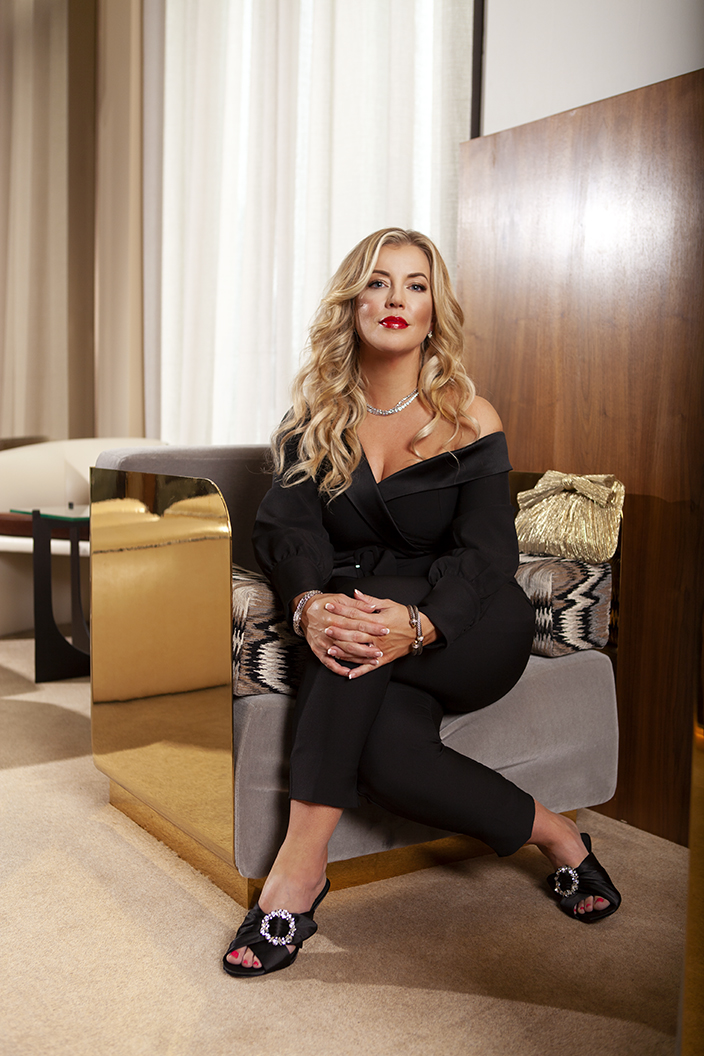
In Dallas, Dailey felt underestimated. Being new in a bigger city was intimidating for a 15-year-old whose sole introduction was talent. Where Jacksonville lacked opportunity, the performing arts school more than made up for it. Professional groups auditioned seemingly tireless students to go on tour. And even though Dailey knew nothing about jazz, she knew it was the most promising program. (So too, apparently, did her classmate and piano accompanist Norah Jones.) Within her very first week, Dailey won an audition as a backup singer for a country artist, kicking off a nationwide tour. Tutors helped her keep up with schoolwork, and more jobs popped up on the road. She started sending money home to the family that moved to support her.
“That was that kind of underdog feeling that never left throughout my entire education,” recalls Dailey. “Always feeling like I’ve got to work twice as hard as everybody else just to keep up.”
Responsible Privilege
While Dailey’s blond hair, femininity and Southern accent are charming in most environments, they also made her an easy target for academic bias. Even among entertainers, sopranos are discredited and painted as delusional and annoying. The intimidation of catching up to students with more sophisticated music experience propelled her through auditions and scholarships. But she sensed an air of disbelief when she’d raise her hand to identify herself as the recipient. Maintaining the presence of mind necessary to keep up also meant noticing others around her who were even less included. She felt the pressure with the privilege.
Later, at the University of Texas, she performed across genres. Frustrated to be singing historically Black music, like spirituals, without Black singers involved. She also noticed music internships were all unpaid and so involved that students couldn’t possibly hold down a second job simultaneously. One segment of the pipeline from student to working performer could make or break a career. Many artists were being cut out simply because they couldn’t afford to work for free. Wanting to offer paid internships for marginalized students, Dailey conceived of the Austin Artists Project.
“I’ve lived in a place where I know exactly what it feels like to be underestimated and to be left out of the conversation,” says Dailey. “And I know what it is to have privilege. I feel a great responsibility to use it wisely.”
Broadway Brunch
Explaining the goal of Sing Out! via Zoom call to a potential partner outside the music scene, Dailey laughs and promises there will be no “Broadway shame.”
Meaning, she doesn’t expect everyone to come to a show or even a conversation with all the same references. Especially as a classical musician, mostly singing with the Grammy-winning choral ensemble Conspirare, she sees the prevalence of musical elitism and knows how othering it can feel. Her goal is to deepen connections through the arts and to celebrate the things we like without worrying about how to maintain a place at the table.
One of AAP’s recurring programs closing that gap is the membership-based Broadway Brunch. Hosted at members’ houses, the goal is to get donors and young artists face-to-face. This way the work of the nonprofit isn’t so abstract and more direct relationships can grow. After the pandemic made large gatherings impractical, brunch transitioned from a social singalong to a livestreamed concert set with a new $500 grant for each performer.
Dailey explains warmly, “It’s such a natural thing when you get to know someone and you remember which audition they’re up for. It becomes a community.”
Donors can also sponsor pay-it-forward lessons within AAP’s Greg Easley-Bryant Young Artists Program, named after the late Austin choreographer. A $50 donation pays for a lesson from an AAP grant recipient or qualified expert to a high school or college student, who then teaches a lesson to a middle school or elementary student. AAP is also in talks with the aerial arts group Blue Lapis Light about providing weekly lessons to a group of students based in one apartment complex with limited transportation resources. At one meeting, the board discussed hiring a background-checked bus driver who can commit long term. Dailey hoped out loud she could strike a deal with donors to feed the kids on the way home. Offsetting some food insecurity arising while students aren’t getting school lunches.
Fundraising Solutions
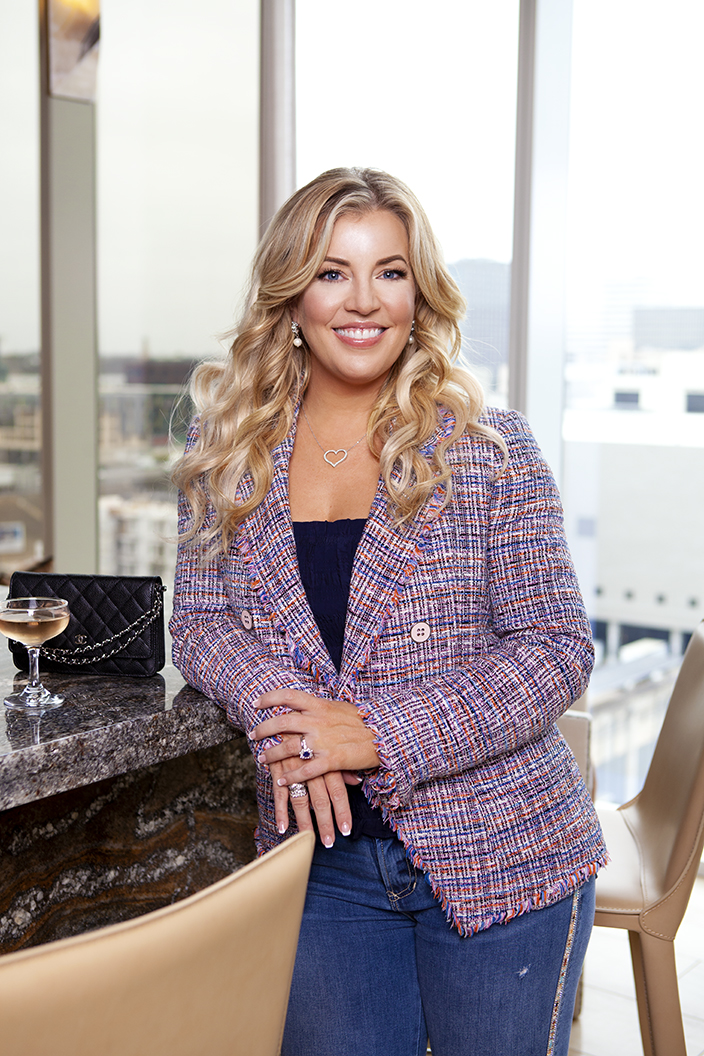
Throughout the talks around funding each initiative, there’s a strong idea of making donors aware of who they’re supporting and how. It’s a very personal process of trying to connect whole resources to whole people. (Instead of pooling donations and distributing them ad hoc.) There’s endless talk of underwriting that Dailey applies to her own life, maybe without realizing it.
AAP is Dailey’s central project during the pandemic, when her schedule is less full—though not empty—of performances and travel. Just as AAP artists have sponsors, Dailey has Merick Strategies, her own for-profit consulting firm that she says “underwrites” her efforts in the nonprofit. Merick does a lot of what AAP does, producing large-scale shows and inventing fundraising solutions. The professional teams running both engines are very similar; to name just one, the executive assistant at Merick, Staci McIntyre, is director of operations at AAP. If Dailey can make a connection at a Tesla charger, she can make endless more as a consultant. Often converting clients into friends, and then into donors.
The Plum Book
When Senator Mitt Romney was running for president in 2012, he famously fumbled a debate question about pay equity for women. He alluded to the “binders full of women” he received from women’s advocacy groups after requesting applications for his gubernatorial cabinet. The public assumed the binders were a patronizing metaphor. But in 2017, an aide revealed 15 pounds of actual binders to the Boston Globe.
Similar binders still exist, in actuality and in spirit, maintained by groups like AAP and the National Women’s Political Caucus, who will push diverse, qualified resumes on hiring committees whenever the opportunity arises. After singing and auctioneering at a caucus fundraiser, Dailey got a call from its president, Donna Lent. Inviting her onto the Presidential Task Force on the Arts and Humanities. Dailey was to review applications and make recommendations to sometimes obscure positions within the Joe Biden-Kamala Harris administration. Many of which had been left empty over the past four years. The thousands of positions are published during every presidential transition, available online in the Plum Book.
According to the Biden-Harris administration, the goal is to make diverse appointments that will make White House staff “look like America.”
In classic form, Dailey’s ideas spilled out and compounded. Drawing from her nonprofit work, she is hoping to branch out further into the administration and find new ways of engaging with the performing arts.
“You can’t change representation if you don’t have these people being considered,” Dailey says. She reflects on the number of long-vacant positions the task force is working to fill, rather than replace. “It’s so alarming to me that our government was able to function.”
“Like” Is Awesome
It would be easy for Dailey, with her boundless enthusiasm, to “yes, and” her life into an unrecognizable string of commitments. The pandemic cut down on some of them, but many have been a matter of careful prioritizing. As Dailey travels less, she and her husband, music director at the Austin Symphony Orchestra, Peter Bay, have never spent so much time together. Dailey gleefully announces the two “just like each other” and are gladly soaking up the leisure time.
“‘Like’ is awesome,” Dailey says. “It’s a true respect. It’s a true day-in-day-out joy.”
The couple’s 13-year-old “man of few words,” by his mother’s description, is also a man of surprisingly many smiles on her Instagram page. She recently styled the teen with an at-home perm that screams in equal parts, “dedicated mom” and “quarantine project.”
Like any mom, Dailey has made sacrifices. She makes sure they always come with a compromise. She’ll make lists of promises on free days and stick to them. She’ll do anything to make a basketball game. She may not be like the other parents who always show up to PTA events. But she knows her son gets it.
“I only knew he was proud of me when he asked if he could bring my Grammy to show-and-tell at school,” Dailey remembers. “He kept volunteering me for career day.”
“There is No Shame About Who I Am.”
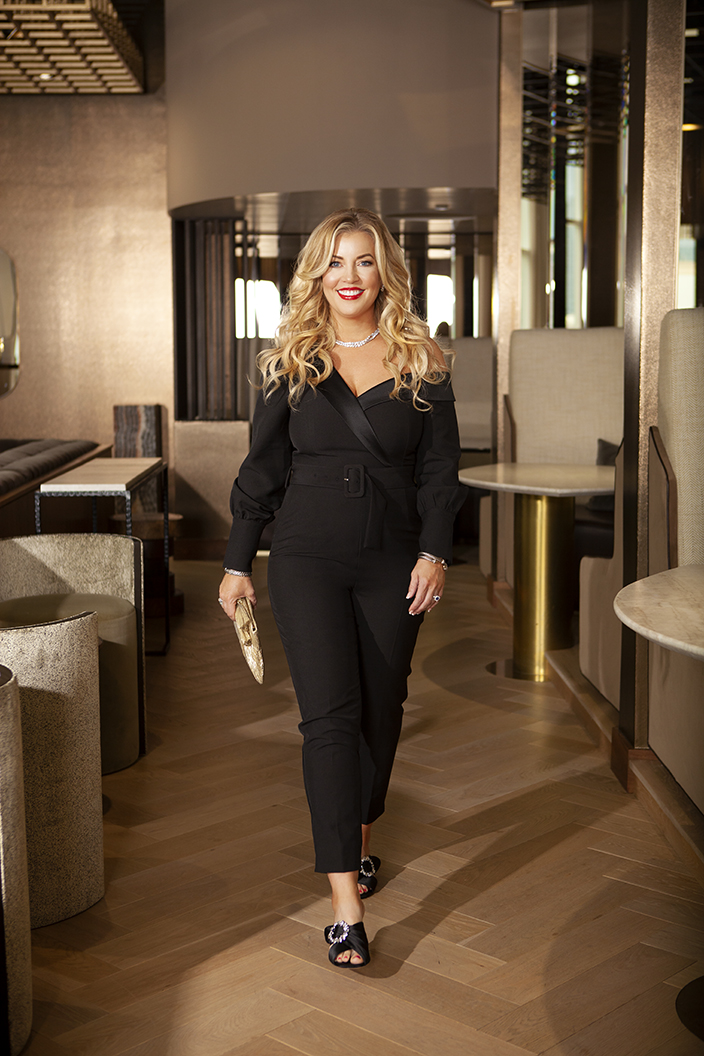
Dailey’s commitment to family is both loud and seemingly effortless. She knows not everyone understands this. While her 15-year marriage is strong and celebrated, she knows the stereotypes. Bisexuality is conflated with promiscuity, an inability to commit to one type of people, let alone one person. In the past, Dailey’s kept quiet about her stake in the LGBTQIA2+ community. Not hiding it, but not starting the conversation. When met with comments about her allyship, however, some discomfort sets in. Over time, she’s decided to sacrifice some privacy to make a bigger impact.
She knows the invalidating, inappropriate comments will keep coming. The ones that reduce her in a boardroom the way she was underestimated at school. She also knows she would have loved to see herself, the way she is now, as that kid without all the words for why she felt different. The benefits of making herself an example, leveraging both her privilege and hard-earned confidence, are worth a few bigoted jabs.
“I absolutely love everything about my life. And I don’t fit into anybody else’s definition of who I’m supposed to be. I can be authentic, and there is [no]shame about who I am.”


1 Comment
I’ve known this amazing Austin woman for 15 years and I’m continually amazed at how her heart and talents keep expanding and blooming in née directions! Y’all chose wisely with this cover story!!